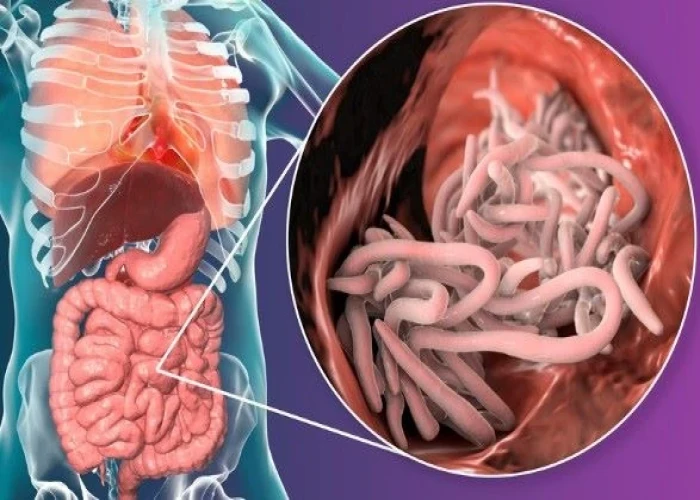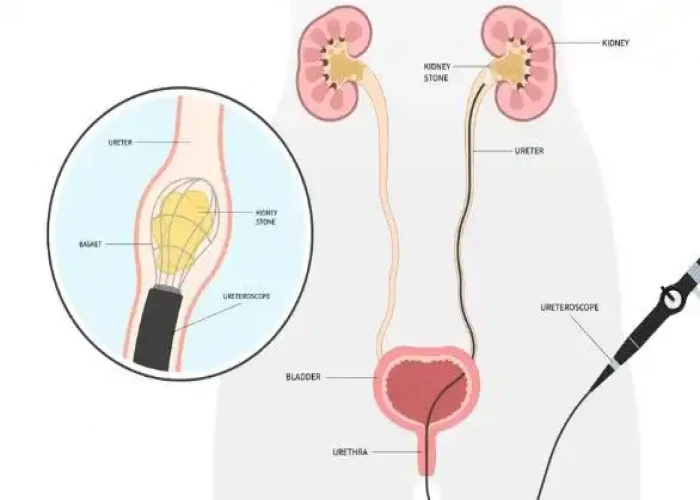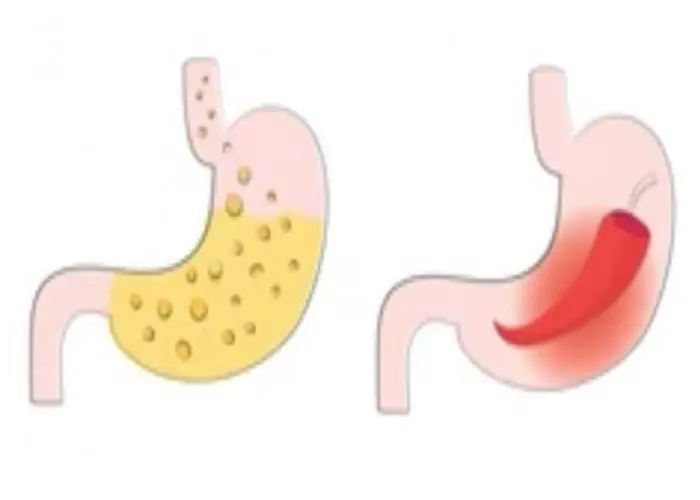 Welcome
Welcome
“May all be happy, may all be healed, may all be at peace and may no one ever suffer."
Male infertility

Male infertility is a condition in which a man is unable to father a child due to problems with his sperm or reproductive system. Male infertility can be caused by a variety of factors, including:
- Low sperm count or poor sperm quality
- Obstruction of the sperm ducts
- Hormonal imbalances
- Genetic disorders
- Chronic illnesses, such as diabetes or HIV/AIDS
- Infections, such as sexually transmitted infections or prostatitis
- Exposure to toxins, such as pesticides or heavy metals
- Certain medications or treatments, such as chemotherapy or radiation therapy
The symptoms of male infertility may include difficulty or inability to conceive a child, as well as problems with sexual function or ejaculation. However, in many cases, there may be no obvious signs or symptoms of male infertility.
Diagnosis of male infertility involves a thorough medical history and physical exam, as well as semen analysis to evaluate the quantity and quality of sperm. Other tests may be recommended based on the underlying cause of infertility.
Treatment for male infertility depends on the underlying cause and may include lifestyle changes, such as quitting smoking or reducing alcohol intake, medications to improve sperm production or treat hormonal imbalances, surgery to correct physical abnormalities or blockages, or assisted reproductive technologies such as in vitro fertilization (IVF) or intracytoplasmic sperm injection (ICSI).
It is important for men experiencing infertility to seek medical attention and treatment as needed, as infertility can be a source of emotional distress and can have significant impacts on relationships and quality of life.
Research Papers
Disease Signs and Symptoms
- Sexual dysfunction
- Reduced sexual desire
- Swollen testicle
- Testicle pain
- Recurrent respiratory infections
- Smell loss
- Abnormal breast growth
- A lower than normal sperm count (fewer than 15 million sperm per milliliter of semen or a total sperm count of less than 39 million per ejaculate)
- Severe muscle rigidity or spasms
Disease Causes
Male infertility
Male fertility is a complex process. To get your partner pregnant, the following must occur:
- You must produce healthy sperm. Initially, this involves the growth and formation of the male reproductive organs during puberty. At least one of your testicles must be functioning correctly, and your body must produce testosterone and other hormones to trigger and maintain sperm production.
- Sperm have to be carried into the semen. Once sperm are produced in the testicles, delicate tubes transport them until they mix with semen and are ejaculated out of the penis.
- There needs to be enough sperm in the semen. If the number of sperm in your semen (sperm count) is low, it decreases the odds that one of your sperm will fertilize your partner's egg. A low sperm count is fewer than 15 million sperm per milliliter of semen or fewer than 39 million per ejaculate.
- Sperm must be functional and able to move. If the movement (motility) or function of your sperm is abnormal, the sperm may not be able to reach or penetrate your partner's egg.
Medical causes
Problems with male fertility can be caused by a number of health issues and medical treatments:
- Varicocele. A varicocele is a swelling of the veins that drain the testicle. It's the most common reversible cause of male infertility. Although the exact reason that varicoceles cause infertility is unknown, it may be related to abnormal blood flow. Varicoceles lead to reduced sperm quantity and quality.
- Infection. Some infections can interfere with sperm production or sperm health or can cause scarring that blocks the passage of sperm. These include inflammation of the epididymis (epididymitis) or testicles (orchitis) and some sexually transmitted infections, including gonorrhea or HIV. Although some infections can result in permanent testicular damage, most often sperm can still be retrieved.
- Ejaculation issues. Retrograde ejaculation occurs when semen enters the bladder during orgasm instead of emerging out the tip of the penis. Various health conditions can cause retrograde ejaculation, including diabetes, spinal injuries, medications, and surgery of the bladder, prostate or urethra.
- Antibodies that attack sperm. Anti-sperm antibodies are immune system cells that mistakenly identify sperm as harmful invaders and attempt to eliminate them.
- Tumors. Cancers and nonmalignant tumors can affect the male reproductive organs directly, through the glands that release hormones related to reproduction, such as the pituitary gland, or through unknown causes. In some cases, surgery, radiation or chemotherapy to treat tumors can affect male fertility.
- Undescended testicles. In some males, during fetal development one or both testicles fail to descend from the abdomen into the sac that normally contains the testicles (scrotum). Decreased fertility is more likely in men who have had this condition.
- Hormone imbalances. Infertility can result from disorders of the testicles themselves or an abnormality affecting other hormonal systems including the hypothalamus, pituitary, thyroid and adrenal glands. Low testosterone (male hypogonadism) and other hormonal problems have a number of possible underlying causes.
- Defects of tubules that transport sperm. Many different tubes carry sperm. They can be blocked due to various causes, including inadvertent injury from surgery, prior infections, trauma or abnormal development, such as with cystic fibrosis or similar inherited conditions.
- Blockage can occur at any level, including within the testicle, in the tubes that drain the testicle, in the epididymis, in the vas deferens, near the ejaculatory ducts or in the urethra.
- Chromosome defects. Inherited disorders such as Klinefelter's syndrome — in which a male is born with two X chromosomes and one Y chromosome (instead of one X and one Y) — cause abnormal development of the male reproductive organs. Other genetic syndromes associated with infertility include cystic fibrosis and Kallmann's syndrome.
- Problems with sexual intercourse. These can include trouble keeping or maintaining an erection sufficient for sex (erectile dysfunction), premature ejaculation, painful intercourse, anatomical abnormalities such as having a urethral opening beneath the penis (hypospadias), or psychological or relationship problems that interfere with sex.
- Celiac disease. Celiac disease is a digestive disorder caused by sensitivity to a protein found in wheat called gluten. The condition may contribute to male infertility. Fertility may improve after adopting a gluten-free diet.
- Certain medications. Testosterone replacement therapy, long-term anabolic steroid use, cancer medications (chemotherapy), some ulcer drugs, some arthritis drugs and certain other medications can impair sperm production and decrease male fertility.
- Prior surgeries. Certain surgeries may prevent you from having sperm in your ejaculate, including vasectomy, scrotal or testicular surgeries, prostate surgeries, and large abdominal surgeries performed for testicular and rectal cancers, among others.
Environmental causes
Overexposure to certain environmental elements such as heat, toxins and chemicals can reduce sperm production or sperm function. Specific causes include:
- Industrial chemicals. Extended exposure to certain chemicals, pesticides, herbicides, organic solvents and painting materials may contribute to low sperm counts.
- Heavy metal exposure. Exposure to lead or other heavy metals also may cause infertility.
- Radiation or X-rays. Exposure to radiation can reduce sperm production, though it will often eventually return to normal. With high doses of radiation, sperm production can be permanently reduced.
- Overheating the testicles. Elevated temperatures may impair sperm production and function. Although studies are limited and are inconclusive, frequent use of saunas or hot tubs may temporarily impair your sperm count.
- Sitting for long periods, wearing tight clothing or working on a laptop computer for long stretches of time also may increase the temperature in your scrotum and may slightly reduce sperm production. But, the research isn't conclusive.
Health, lifestyle and other causes
Some other causes of male infertility include:
- Drug use. Anabolic steroids taken to stimulate muscle strength and growth can cause the testicles to shrink and sperm production to decrease. Use of cocaine or marijuana may temporarily reduce the number and quality of your sperm as well.
- Alcohol use. Drinking alcohol can lower testosterone levels, cause erectile dysfunction and decrease sperm production. Liver disease caused by excessive drinking also may lead to fertility problems.
- Tobacco smoking. Men who smoke may have a lower sperm count than do those who don't smoke. Secondhand smoke also may affect male fertility.
- Weight. Obesity can impair fertility in several ways, including directly impacting sperm themselves as well as by causing hormone changes that reduce male fertility.
Disease Prevents
Disease Treatments
Disease Diagnoses
Disease Allopathic Generics
Disease Ayurvedic Generics
Disease Homeopathic Generics
Disease yoga
Male infertility and Learn More about Diseases

Malaria Fever

Boils (Absces or Carbuncles)

Round Worm

Whooping cough

Urinary tract infection (UTI)

Umbilical hernia

Ureteral obstruction

Bile reflux
male infertility, পুরুষ বন্ধ্যাত্ব
To be happy, beautiful, healthy, wealthy, hale and long-lived stay with DM3S.
